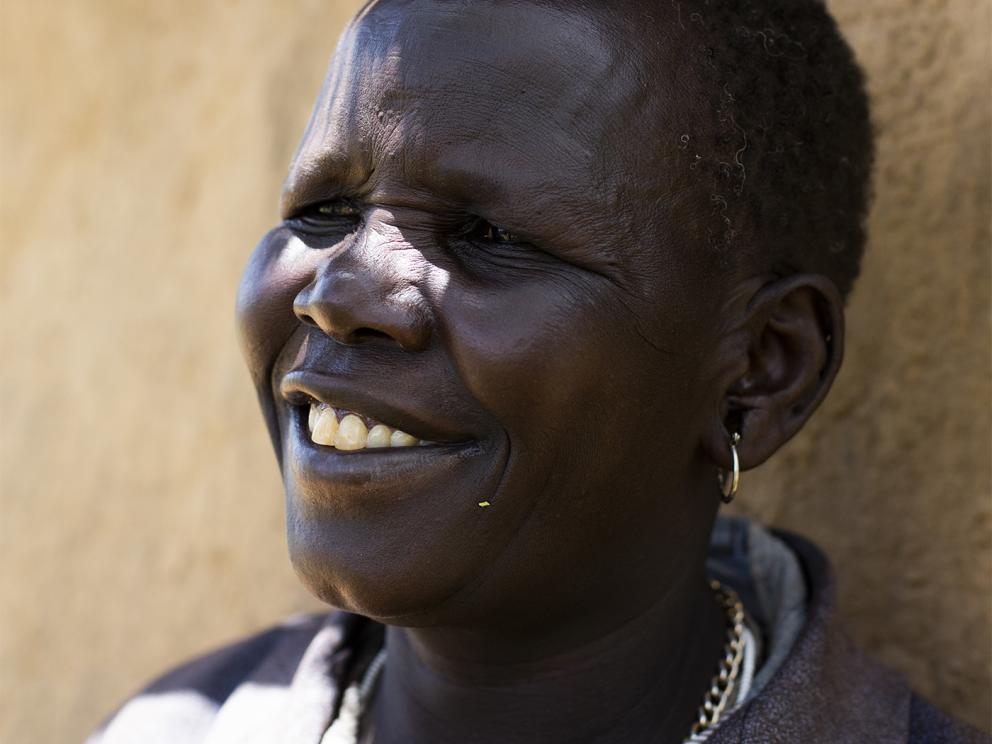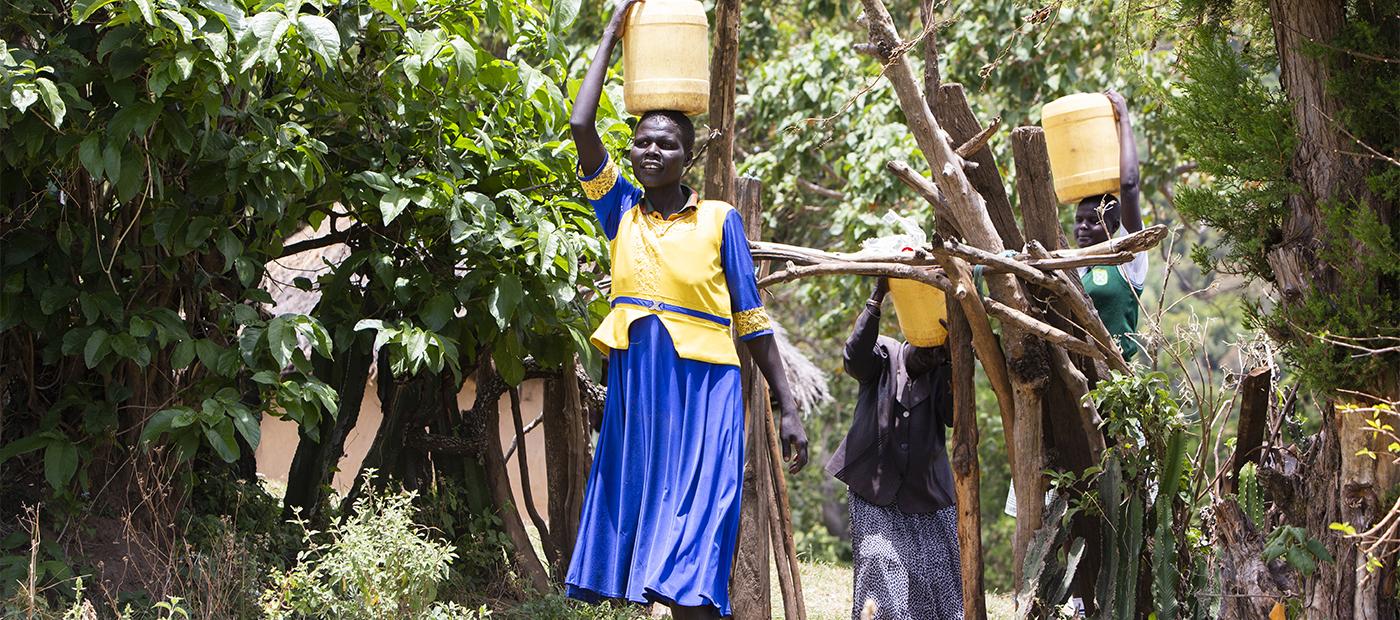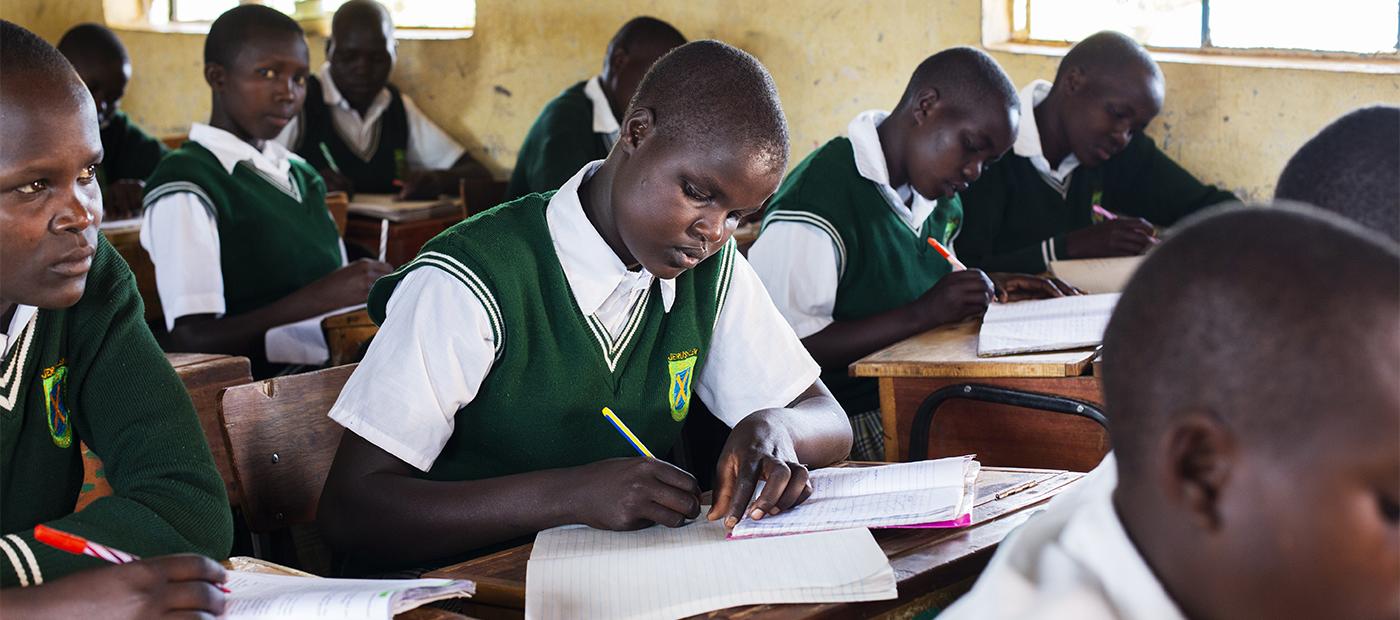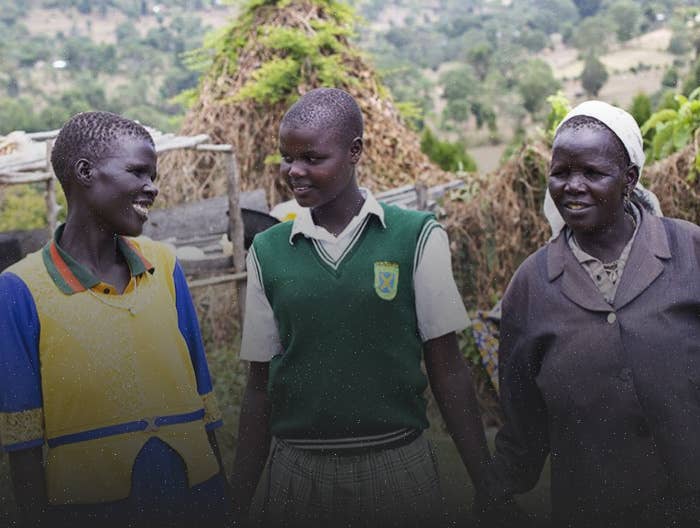Meet the three strong women of the Losokolian family who broke the harmful tradition of female genital mutilation in an area where one in three girls get cut to this day. The power figure of change is Grandma Cheptoi who was among the first to decide not to mutilate her daughters after receiving training from World Vision. “My two oldest daughters were mutilated because I thought it was necessary to do so,” she recalls. “It was a tradition that had to be respected. Once I did the World Vision training, I started to think differently and my youngest daughters were never cut.”

Grandma Cheptoi says the uncut daughters have had an easier life. “They continued their studies even up to university. The mutilated daughters went to school for only a few years and got married early. Their lives became heavy.” Domtilla is one of Cheptoi’s older daughters who suffered mutilation at age twelve. She presses her knuckles to her lips as she recalls the ritual: “Ten of us girls were directed to a nearby river to bathe. From there we were taken to a tent where we had to sit in a ring. The pain was terrible. After the procedure, our legs were tied together to promote recovery. It took a month to heal. Going to the toilet, walking, every move was painful. Washing was also banned. Many of the girls suffered from severe infections. We had to stay in a cow shed and we only drank fresh cow’s milk and water. It was a month of suffering.”

Mutilation put an end to Domtilla’s education. She soon became pregnant with Joylene. Childbirth was very difficult. “I was sewn almost completely closed,” Domtilla says. “As soon as Joylene was born, I decided she would never experience what I had to.” Keeping the decision has not been easy. Joylene’s father demanded that the girl was cut. In difficult moments, Domtilla turned to Cheptoi, who used her prestige to protect her granddaughter. “We show our men that mutilation is history in this family,” Domtilla says. Indeed, mutilation seems a custom from the past to Joylene. “I know that Grandma and Mother were mutilated, but that happened sometime in the last century.”

Joylene is a lucky girl. About one in three girls in her community is still mutilated. In some families, girls have to be guarded from being kidnapped during the night for the procedure.
Fortunately, this is not a concern for Joylene. She is among the top ten students in the school. Her favorite subject is biology. Her school success has made her father's condemnatory voice fade. According to Domtilla, he started to realise that an educated girl brings well-being to the whole family.
“I have pretty clear plans for the future,” Joylene adds. “I will go to college to study medicine. Then sometime after graduation I might get married and have kids.”
